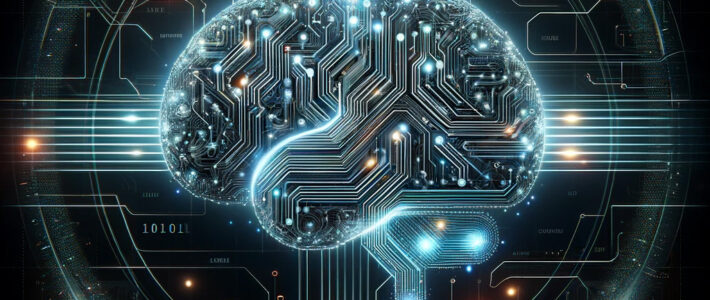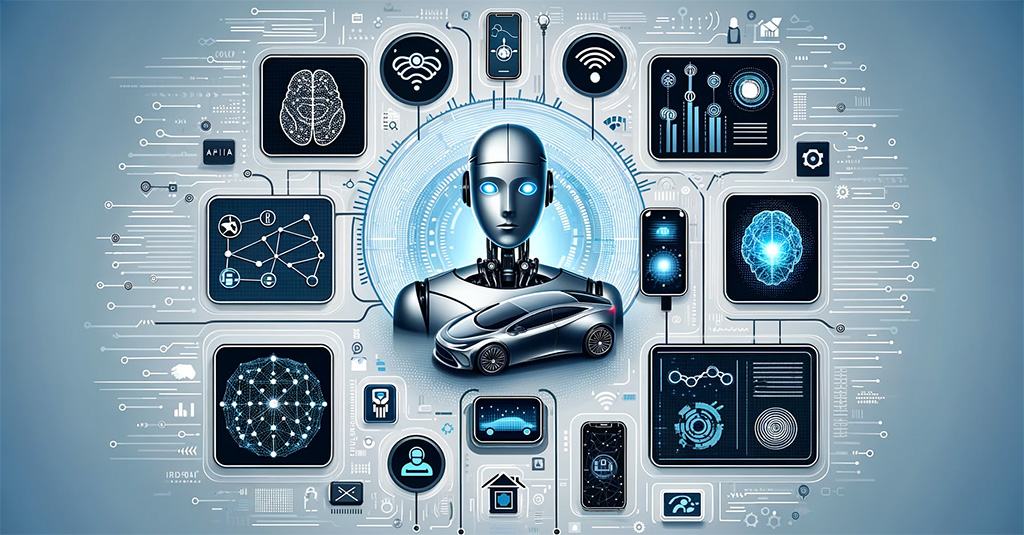How intelligent is Artificial Intelligence?

The term “Artificial Intelligence” (AI) conjures up images of smart robots and futuristic technologies. But how intelligent is AI really? This essay delves into the nuances of AI’s intelligence, comparing it with human cognition, examining its capabilities and limitations, and exploring its future potential.
The Spectrum of AI Intelligence
Artificial intelligence is a collective term that describes a wide variety of areas in the digital world.
Defining AI Intelligence
AI intelligence is fundamentally different from human intelligence. It’s defined by its ability to perform tasks that would typically require human intelligence, such as recognizing speech, making decisions, and solving problems. However, it lacks human qualities like consciousness and emotional understanding.
Levels of AI
AI operates at various levels, from basic machine learning algorithms to advanced deep learning and neural networks. While simple AI can perform specific tasks better than humans, like calculating large numbers quickly, more complex AI systems, such as those driving autonomous vehicles, demonstrate a higher level of ‘intelligence’ by synthesizing information from various sources to make decisions.

Comparing AI with Human Intelligence
Artificial Intelligence does not have to do so much with human intelligence. The great breadth of human intelligence, which encompasses an incredible range, is always at odds with AI.
Specialization vs. Generalization
AI excels in specialized tasks. For instance, AI in healthcare can analyse medical images with greater accuracy than most humans. However, unlike humans, AI cannot easily transfer knowledge from one domain to another. Humans possess general intelligence – the ability to learn and apply knowledge in vastly different contexts.
Learning and Adaptation(1)
AI systems learn from large datasets, often much faster than humans. Yet, they struggle to adapt to new, unforeseen scenarios outside their training data. Human intelligence is remarkably adaptable, capable of understanding and adjusting to new situations rapidly.
Creativity and Emotional Intelligence
AI lacks genuine creativity and emotional intelligence. It can mimic these aspects based on data and algorithms but doesn’t ‘understand’ them. Human intelligence is deeply intertwined with emotional responses and creative thinking, areas where AI cannot authentically replicate human capabilities.

The Capabilities and Limitations of AI
The wide-ranging possibilities of AI – especially when focussed on specific areas such as image recognition – are in stark contrast to the considerable limits placed on AI.
Capabilities
AI’s strengths lie in its ability to process and analyse vast amounts of data swiftly and accurately, perform repetitive tasks without fatigue, and identify patterns imperceptible to humans. These capabilities make AI invaluable in fields like data analysis, automation, and predictive modelling.
Limitations
AI’s intelligence is constrained by the quality and quantity of the data it is trained on. It lacks the ability to reason abstractly or ethically, and is dependent on human input for its learning process. AI also faces challenges in understanding context and displaying genuine empathy.
The Future of Artificial Intelligence
- Advancements
As AI technology advances, it is expected to become more sophisticated in its problem-solving abilities and more adept at handling complex, multi-faceted tasks. - Human-AI Collaboration
The future likely holds more of a partnership between human and AI intelligence. By combining AI’s data-processing capabilities with human creativity and adaptability, this collaboration could solve some of the world’s most pressing problems. - Ethical Considerations
As AI becomes more ‘intelligent’, ethical considerations become paramount. Ensuring responsible AI use that respects privacy, avoids bias, and considers the broader social impact is crucial.
Conclusion
As with many new developments, AI shows the usual progression of technical development. Perhaps we can compare AI with the development and use of the pocket calculator:
- A group of people were enthusiastic about the simplicity and speed of the calculations.
Today, a calculator is everybody’s common tool without it being questioned any further. - The schools and the group of teachers were up in arms against its use in schools: the pupils would no longer be able to do maths, there would be a risk of dumbing down at school and maths would lose its importance.
Today we know that pupils have not become stupid, that maths with its complex theories is still hugely important and that the calculator has become an aid to maths in the same way that a knife and fork are an aid to eating. Artificial Intelligence, as it stands, is a powerful tool with impressive capabilities.
AI’s intelligence, though different from human intelligence, complements our own cognitive abilities. While AI excels in data processing and pattern recognition, it lacks the adaptability, creativity, and emotional depth inherent in humans. The intelligence of AI is thus a specialized and focused one, valuable in specific contexts but not a replacement for the broad, nuanced intelligence of humans. As AI continues to evolve, its interplay with human intelligence will undoubtedly reshape our world, but it will not render the unique aspects of human cognition obsolete.
Sources
- Reinforcement Learning: An Introduction
(http://incompleteideas.net/book/RLbook2020.pdf)
Adaptive Learning through Artificial Intelligence
(Link) - Future of Artificial Intelligence
(https://www.simplilearn.com/future-of-artificial-intelligence-article)
